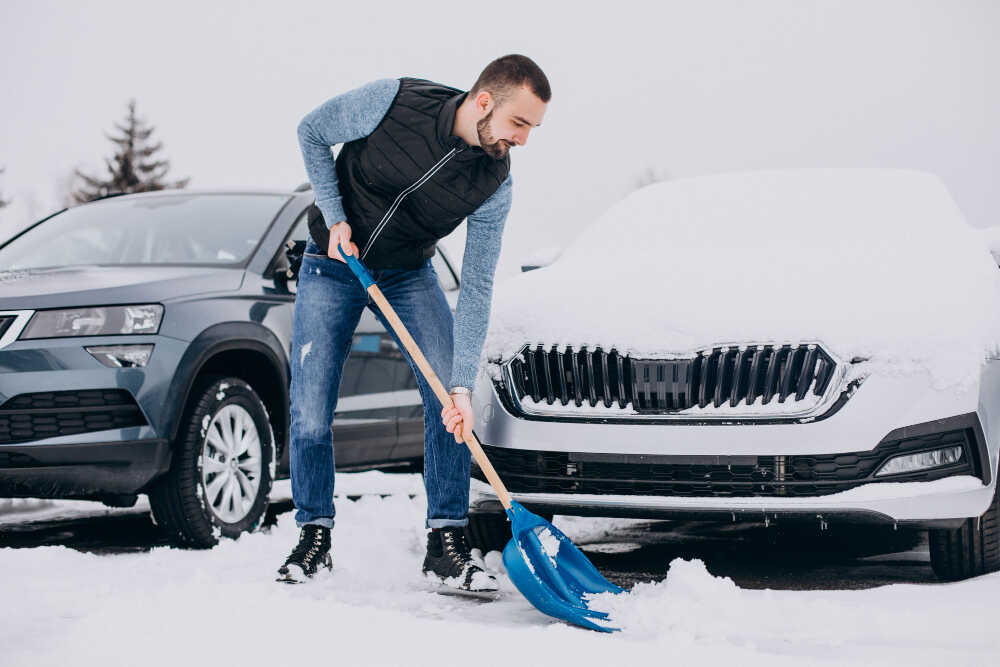
Winter brings snow, icy roads, and, of course, road salt. While salt helps keep roads safer for driving, it can be tough on your vehicle. The combination of salt, moisture, and freezing temperatures creates the perfect recipe for rust and corrosion, which can eat away at your car's undercarriage, brakes, and even the body panels. Thankfully, a few proactive steps can help protect your vehicle from winter salt damage. Let's dive in!
1. Wash Your Car Regularly
A regular wash is your car's best defense against salt. Salt sticks to your vehicle, creating a corrosive layer that attacks the paint and metal. Washing your car every two weeks during winter—especially after a snowstorm—can prevent salt buildup. Focus on cleaning the undercarriage; this area gets the most salt exposure. Opt for a car wash with undercarriage cleaning or, if you prefer DIY, use a hose or pressure washer.
2. Apply a Wax or Sealant
Before winter hits, apply a coat of high-quality car wax or paint sealant. Wax creates a protective barrier on your car's surface, making it harder for salt and dirt to stick. On the other hand, a sealant offers long-lasting protection, perfect for harsh winter months. Don't forget to apply protective sprays for the undercarriage to keep rust at bay.
3. Inspect and Repair Damage Quickly
Even a tiny chip in your car's paint can let salt and moisture seep in, leading to rust. Inspect your vehicle regularly for scratches, dents, or chips, and get them repaired right away. A simple touch-up can prevent costly repairs down the line.
4. Use Floor Mats to Protect the Interior
Salt doesn't just harm your car's exterior—it can also mess up the interior. Salt from your shoes can leave stains on carpets and mats, so use all-weather rubber floor mats during winter. They're easy to clean and do a great job of keeping salt, snow, and mud away from your car's carpets.
5. Park Smart
If possible, avoid parking in areas where snow and salt collect, such as roadside shoulders or slushy parking lots. When you park in a garage, make sure it's ventilated. A poorly ventilated garage can trap moisture, which speeds up corrosion when combined with salt.
6. Undercoat Your Vehicle
Investing in an undercoating service is one of the most effective ways to protect your car. This treatment involves spraying a protective layer underneath your vehicle, shielding it from salt and moisture. Finishing this before winter is best, but late protection is better than none.
7. Rinse Off Snow Before Parking
If your car is covered in snow and slush, rinse it off before parking it in a warm area like a garage. Warmth melts the snow, turning it into salty water that clings to your vehicle and accelerates rust.
8. Consider Salt Alternatives
If you're responsible for your driveway, consider using salt alternatives like sand, kitty litter, or calcium magnesium acetate. These options are less corrosive and just as effective at improving traction.
Winter salt damage can be costly, but with these tips, your car will survive the season in perfect condition. Protecting your vehicle is all about consistency and care. And don't hesitate to take your car to a reliable auto repair shop immediately if you see any corrosion or rust. Stay safe, and keep your car shining, even in the coldest months!